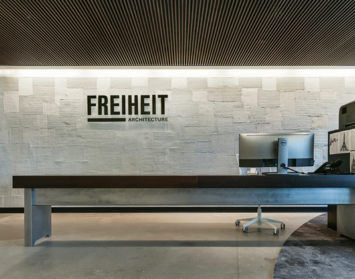By Owen Rice & Riley Hillis
As a firm that specializes in representing tenants and owner/users of commercial real estate, we spend every day protecting the interests of companies. That singular focus gives us a real edge, especially in moments like this when the market is shifting quickly.
The reality is, banks are quietly pulling back from commercial real estate lending, and while this trend has been unfolding for a while, we are now seeing the full effect of a market defined by elevated borrowing costs, tighter underwriting and a shrinking pool of willing lenders.
This isn’t simply a reaction to interest rate volatility, it’s structural. And whether you lease or own your space, it’s something you need to understand.
Why Are Banks Pulling Back?
Rising interest rates and regional bank failures play a role, but there’s a deeper driver: Basel III regulations. Basel III is a global set of banking rules designed to prevent another financial crisis. One key requirement? Banks must hold more capital against riskier loans, including commercial real estate, which makes commercial real estate loans more expensive for banks to carry.
As a result, they provide fewer of them, or they charge more to do so. Either way, borrowing gets harder and more expensive. This pullback is most pronounced amongst regional and mid-sized banks, longtime staples of commercial lending. As they retreat, we’re seeing a widening credit gap.
Owner/Users: Expect More Friction
If you own and occupy your building, or are thinking about doing so, you’re in the “owner/user” category.
The good news is that SBA loans remain available, and banks are still active here, especially when other banking relationships are in play. However, the process is slower and more conservative, with tougher underwriting and longer timelines.
At the same time, alternative capital is stepping in. We’re seeing private lenders and life insurance companies offering more flexible structures, higher leverage and faster execution than many traditional banks. They are not always household names, but they’re savvy, creative and well-positioned for this market.
We are not debt brokers, but navigating this landscape is part of what makes us exceptionally good at what we do. We understand how capital flows, who’s lending and how to structure a deal that works, even when the lending environment doesn’t.
Tenants: You’re Not Immune
Even if you’re not borrowing a dollar, this is how it still impacts you:
- Landlord Capital Constraints: Tighter lending conditions make it harder for landlords to fund tenant improvements or building upgrades. In many cases, that means less value delivered, or more cost passed onto tenants.
- Refinance Risk: Owners facing loan maturities are contending with far more expensive debt. Some will pass those costs along in rent and others might delay improvements or sell, creating instability in your lease.
- Deferred Maintenance: To conserve capital, many landlords are quietly pushing off repairs. The building might look the same, but its performance for your team can deteriorate.
- Deal Execution Risk: Refinancings, recapitalizations or pending sales can stall or even unravel your lease negotiations. We’ve seen it happen.
Bottom Line
Whether you lease or own, today’s commercial real estate decisions are shaped by capital. We help companies navigate this complexity with creativity, clarity and the kind of strategic guidance that only comes from representing tenants and owner/users. If you’re considering a lease renewal, relocation, purchase or sale, now is the time to approach it with strategy, not guesswork.
Before partnering with a broker, be sure to ask the kinds of questions that reveal who truly understands the current market:
For tenants: “How do rising lending spreads and Basel III regulations affect landlord behavior, and how might that impact our lease terms or tenant improvement allowance?”
For owner/users: “If we sell our building and lease it back, what are the key valuation levers buyers will focus on, and how do we control the narrative to protect long-term value?”
The right broker will have clear, informed answers. The wrong one will hesitate. As tenant representation advisors, we help you navigate this complexity, protecting your leverage, uncovering hidden risks and structuring deals that hold up no matter what’s happening behind the scenes.
Owen Rice is an executive managing director at Hughes Marino, a global corporate real estate advisory firm that specializes in representing tenants and buyers. Contact Owen at 1-844-662-6635 or owen@hughesmarino.com to learn more.
Riley Hillis is senior vice president of capital markets with Hughes Marino, a global corporate real estate advisory firm that exclusively represents tenants and buyers. Contact Riley at 1-844-662-6635 or riley@hughesmarino.com to learn more.









